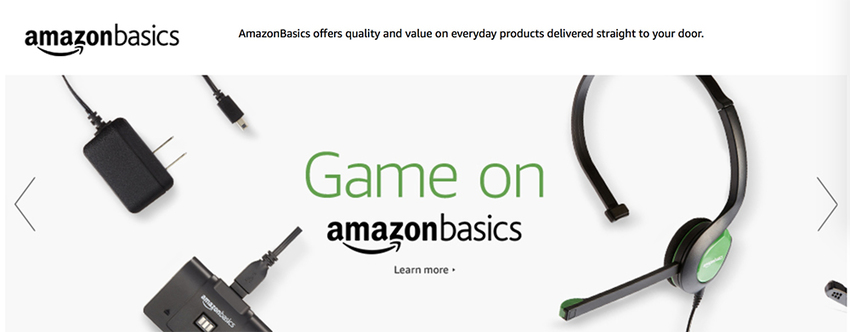For many brands, whether direct-to-consumer online or brick-and-mortar retailers, Amazon is the Grinch that stole Christmas.
That’s because Amazon keeps eating chunks of whatever business it’s in. And this year, it has been using big shopping events such as American Thanksgiving through Cyber Monday, when it sold record amounts of its own-brand Alexa, Kindle and Fire brands—and they’re just the biggest of Amazon’s expanding family of private brands that it has produced and sells on its own channels.
Indeed, this entire holiday season is being used to boost its private label brands, stoking fears as it diverts consumers away from other brands much as Walmart, Target and other retailers are doing in their websites and stores.
Ever-savvier in self-promotion, Amazon is highlighting its fashion portal and exclusive apparel labels with a limited edition collaboration with Calvin Klein in a co-branded pop-up store in that’s running through the holiday season in New York until December 31st.
The growth of Amazon’s private labels may feel like a lump of coal in some brands’ stockings. Amazon has sold $300 million in private label goods so far this year, a 12% increase over 2016, according to a report by One Click Retail.
Its value-conscious AmazonBasics brand, which offers more than 1,500 products, accounted for nearly 85% of its private label sales so far in 2017, while its apparel and baby care brands are up 90% year-over-year vs. 2016.
While that’s a mere sliver of Amazon global sales, now closing in on $300 billion a year, with 20% annual growth—the company’s private label forays into all manner of new categories are keeping retailers and brands up at night.
AmazonBasics launched in 2009 primarily as an electronics category, selling phone-charging cables and the like, but it has since expanded to include many other types of “basics” for the home, ranging from bedding to knife sets.
Amazon quietly operates several dozen private label brands, including a women’s clothing line called Lark & Ro, which—despite being quietly introduced early last year—has generated about $5 million in sales this year, according to One Click. Oprah Winfrey even included a Lark & Ro cashmere sweater as her debut Amazon private-label fashion pick on her 2017 holiday “Favorite Things” shopping list on the site.
Other popular Amazon-owned brands: The Lovely Tote Co. (purses), The Fix (shoes and accessories), Amazon Elements (baby wipes, vitamins and supplements), and the Rivet line of home furnishings.
Amazon’s private label initiatives are extending abroad, as well, including to Europe this year, which now offers Mama Bear baby wipes and Presto! paper towels, and India, where its private label smartphones are competing with home-grown rival Flipkart.
None of that is to mention how Amazon is beginning to harness its acquisition of Whole Foods Markets this year and is gearing up sales of about 2,000 of the chain’s private-label 365 brand products.
The threat to brands from Amazon is so much bigger than from conventional competitors in part because Amazon has control over massive amounts of customer data and also an ability to eat profit losses for an extended period of time, according to Digiday.com.
“Right now, Amazon is throwing a lot at the wall to see what sticks,” Cooper Smith, the Amazon research lead at L2, told Digiday. “They haven’t taken a targeted approach to apparel yet, instead opting to test different things to see where they can compete and where they want to compete. If they put their mind to it, not only can they offer items at a huge discount to bigger player brands, but they can get things to market super quickly.”
Among fashion brands, one of the biggest concerns is that Amazon is tapping for its private labels some of the same suppliers used by the pricier marques whose goods Amazon also sells.
“The hot-button issue for fashion brands is private-label encroachment from Amazon brands,” Smith said. “Amazon is investing heavily in its private-label brands, and they’re working with a lot of the same suppliers who work with the fashion brands they sell.”
Sourced through Scoop.it from: www.brandchannel.com



Leave A Comment